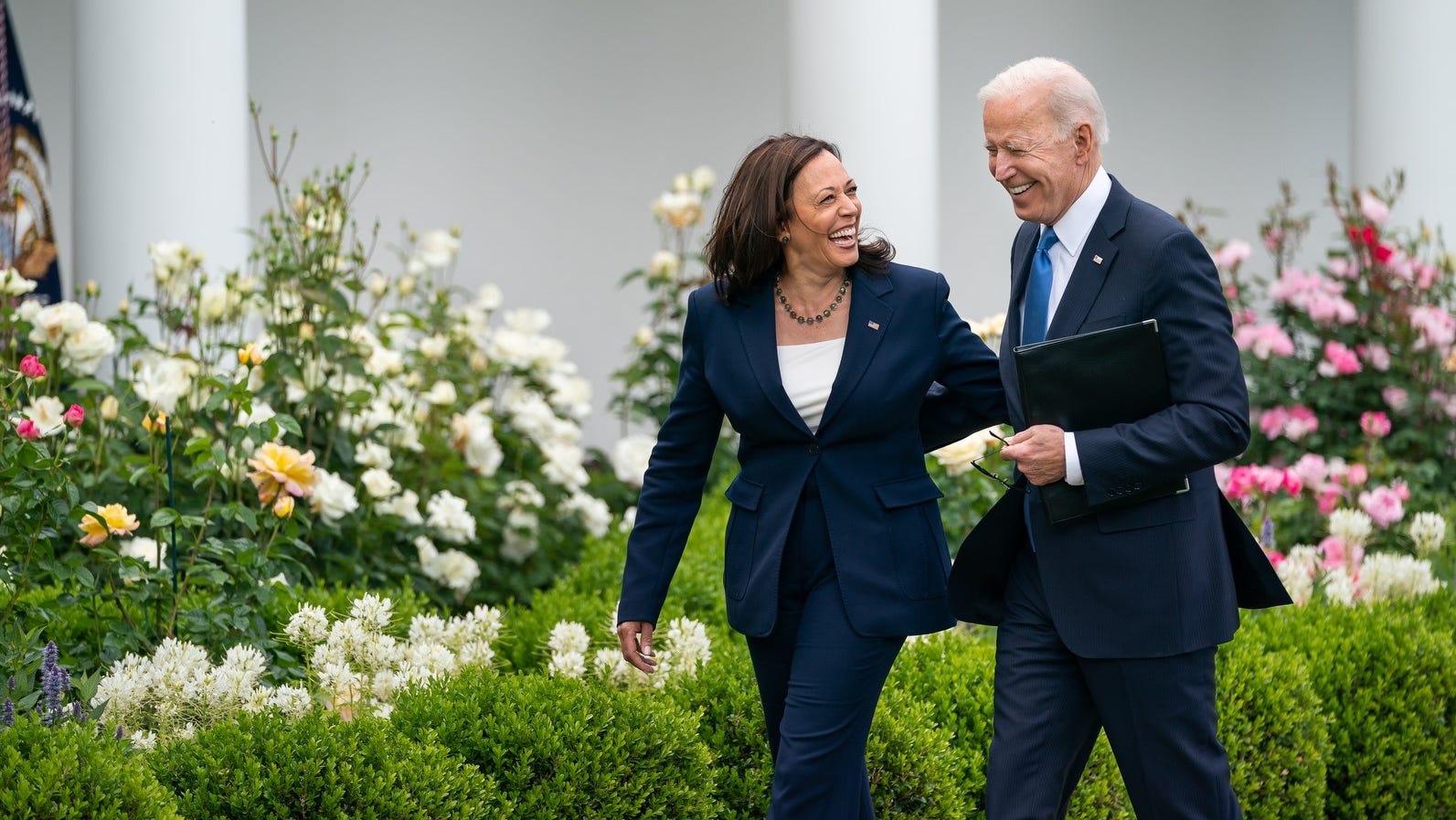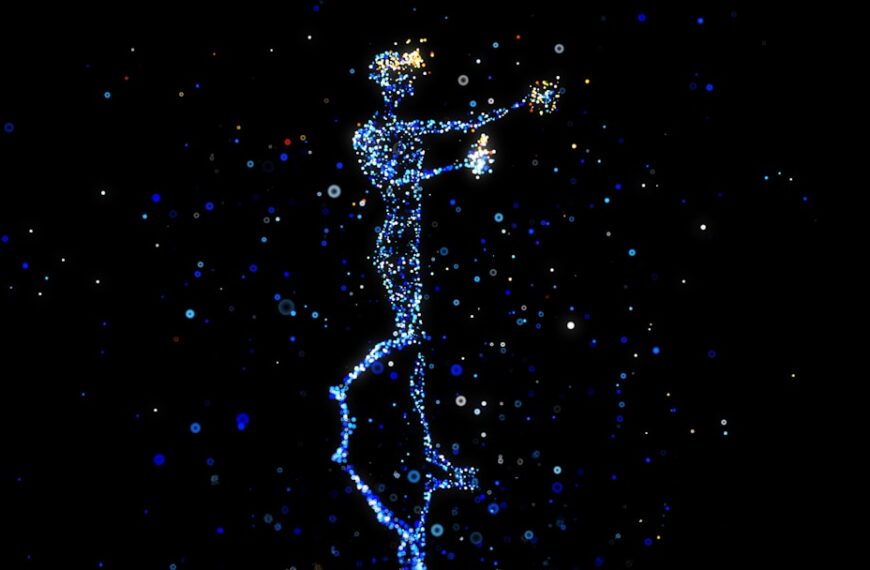As the Democratic National Convention approaches, the focus shifts to identifying Joe Biden’s successor following his decision not to seek re-election. This blog post analyzes the key details surrounding the 2024 DNC, potential nominees, and the implications of Biden’s withdrawal from the race.
Introduction to the 2024 DNC
As we delve into the upcoming Democratic National Convention (DNC) scheduled for August 19 to August 22, 2024, it’s crucial to understand the significance of this event in shaping the political landscape of the United States. The DNC plays a pivotal role in the democratic process by bringing together delegates from across the country to nominate the Democratic Party’s candidates for the presidential and vice-presidential positions.
The history of the DNC dates back decades, with each convention leaving a lasting impact on the party’s direction and the nation as a whole. From pivotal moments like the nomination of former President Bill Clinton in 1996 to the virtual nature of the last DNC in Wilmington, Delaware, where Joe Biden accepted the Democratic nomination, each convention has its unique place in history.
Looking ahead to the 2024 DNC, the focus is not only on the event itself but also on the question of who will replace Joe Biden as the Democratic nominee. Following Biden’s announcement that he will not seek a second term, speculation is rife about potential candidates who could step into his shoes. Vice President Kamala Harris emerges as a strong contender, along with other notable figures like Michigan Gov. Gretchen Whitmer, California Gov. Gavin Newsom, and Transportation Secretary Pete Buttigieg.
As we anticipate the DNC and the subsequent 2024 presidential election on November 5, the political landscape is ripe with possibilities and uncertainties. The DNC serves as a platform for unity, debate, and decision-making, shaping the future of the Democratic Party and influencing the course of the nation’s governance.
Timeline: Dates and Location of the Convention
As we delve into the details of the upcoming Democratic National Convention (DNC) in 2024, it’s essential to mark our calendars for the significant dates and highlight the central location where this pivotal event will take place.
First and foremost, the dates for the 2024 DNC have been officially set from August 19th to August 22nd. These four days will be crucial for the Democratic Party as they gather to nominate their presidential and vice-presidential candidates for the upcoming election.
Turning our attention to the location, the 2024 DNC will be hosted at the iconic United Center in Chicago. This renowned venue will witness political fervor, strategic discussions, and the culmination of the nomination process during these dates.
Key Talking Points:
- Dates for the 2024 DNC: August 19th to August 22nd
- Location: United Center in Chicago
Chicago, with its rich history of hosting political conventions, will once again play a pivotal role in shaping the future of the Democratic Party. The United Center, known for its grandeur and significance, will set the stage for critical decisions and momentous announcements during the convention.
It’s worth noting that this marks a significant return for the DNC to Chicago since 1996 when Bill Clinton secured his second-term nomination. The city’s legacy of political activism and engagement adds a unique flavor to this year’s convention, making it a highly anticipated event.
With the backdrop of historical significance and political importance, the 2024 DNC promises to be a defining moment in the lead-up to the presidential election. Stay tuned for more updates and insights as we approach these crucial dates in August.
Historical Context: Previous DNC Locations
Chicago holds a significant place in the history of the Democratic National Convention (DNC) as a prominent venue for hosting this political event. The city’s rich political heritage and strategic location have made it a popular choice for hosting the DNC over the years.
When we look back at past DNC locations and compare them with Chicago, we can see the unique historical significance that Chicago brings to the table. The city has been a witness to several pivotal moments in DNC history, shaping the course of American politics.
One of the most notable DNC events in Chicago took place in 1968, during a time of intense social and political upheaval in the United States. The convention that year was marred by protests against the Vietnam War, highlighting the city’s role as a focal point for activism and dissent.
Fast forward to 1996, when Chicago once again hosted the DNC, this time for the nomination of former President Bill Clinton for his second term. This marked a return to the city’s political spotlight and reaffirmed its status as a key DNC venue.
With the upcoming 2024 DNC set to take place at the United Center in Chicago, it will mark the 12th time that the city has hosted this prestigious event. The decision to return to Chicago underscores the city’s enduring appeal and historical significance within the Democratic Party.
As we reflect on the past DNC locations and their impact on American politics, Chicago stands out as a symbol of tradition, activism, and political legacy. The city’s storied past continues to shape the narrative of the DNC, making it a fitting choice for hosting this important event once again.
Nomination Process at the DNC
As we delve into the intricate process of nominating presidential and vice-presidential candidates at the Democratic National Convention (DNC) for the upcoming 2024 election, it’s essential to understand the significance and complexity of this pivotal event.
Delegates from each state and U.S. territory play a crucial role in this process by officially nominating the Democratic candidates. These delegates, representing the diverse voices of the party, gather at the DNC to cast their votes based on the primary election results.
Insight into How Delegates Nominate Candidates
The nomination process at the DNC involves a meticulous selection of candidates who will lead the Democratic Party in the upcoming election. Delegates consider various factors such as the candidates’ policies, experience, and ability to resonate with voters.
Each delegate’s vote carries weight and reflects the collective decision-making of their constituents. This democratic approach ensures that the chosen candidates align with the values and aspirations of the party members.
Explanation of the Voting Process Based on Primary Results
Primary election results serve as a guiding force in the voting process at the DNC. Delegates analyze the outcome of primary elections across states to gauge the popularity and electability of potential candidates.
The voting process is not merely a formality but a critical step in determining the Democratic nominees who will vie for the presidency and vice presidency in the 2024 election. The decisions made by delegates shape the future direction of the party and influence the political landscape of the nation.
As the anticipation builds towards the DNC, the spotlight is on who will replace Joe Biden as the Democratic nominee. With Vice President Kamala Harris emerging as a leading candidate, the dynamics of the 2024 election are poised for a transformative shift.
Reasons Behind Biden’s Decision
As we delve into the intricate web of events leading to Joe Biden’s withdrawal from the 2024 presidential race, it becomes evident that a multitude of factors played a significant role in shaping this decision.
Analysis of the factors leading to Biden’s withdrawal from the race:
One of the pivotal reasons behind Biden’s exit from the race was the mounting health concerns that surrounded his candidacy. Following a lackluster debate performance against his opponent, where he exhibited signs of fatigue and struggled with articulation, calls for him to step down gained momentum. The public scrutiny intensified as Biden’s team attempted to downplay his health issues, attributing his lapses to jet lag and a raspy voice.
Moreover, performance issues plagued Biden’s campaign, further exacerbating doubts about his ability to lead effectively. The public’s perception of his competence wavered as he faced criticism for his inconsistent messaging and perceived lack of vigor on the campaign trail.
Impact of health concerns and performance issues:
The convergence of health concerns and performance issues created a challenging environment for Biden, ultimately leading to his decision to withdraw from the race. The relentless pressure from both internal and external stakeholders, coupled with the need to uphold the integrity of the Democratic Party, compelled Biden to prioritize the party’s interests over his personal ambitions.
As the spotlight now shifts to potential nominees who could replace Biden, Vice President Kamala Harris emerges as a frontrunner in the race. With a diverse pool of candidates vying for the Democratic Party’s nomination, the upcoming 2024 election promises to be a dynamic and transformative chapter in American politics.
Potential Candidates to Replace Biden
As the Democratic National Convention approaches, the spotlight is on potential candidates to replace Joe Biden as the party’s nominee for the 2024 election. Let’s delve into the leading contenders and assess their viability and support.
Exploration of Leading Contenders
One of the frontrunners in the race to replace Biden is Vice President Kamala Harris. With her experience and visibility as the current Vice President, Harris stands out as a strong candidate for the Democratic Party’s nomination. Michigan Governor Gretchen Whitmer is another prominent figure being considered. Known for her leadership during the COVID-19 pandemic, Whitmer has garnered support within the party.
California Governor Gavin Newsom, Kentucky Governor Andy Beshear, Pennsylvania Governor Josh Shapiro, and Transportation Secretary Pete Buttigieg are also names that have been circulating as potential contenders. Each brings a unique set of qualifications and strengths to the table, making the decision-making process intriguing.
Assessment of Viability and Support
When evaluating the viability of these candidates, factors such as their political track record, public perception, and ability to unify the party come into play. Harris, with her national profile and previous experience as a senator, has a strong foundation of support within the Democratic Party.
Whitmer’s handling of the pandemic in Michigan has earned her praise, positioning her as a competent leader capable of navigating challenging situations. Newsom, Beshear, Shapiro, and Buttigieg each bring their own strengths and accomplishments to the table, appealing to different segments of the party.
As the Democratic National Convention draws closer, the dynamics of the race may shift, with candidates jockeying for position and seeking to secure endorsements and delegate support. The road to becoming the Democratic nominee is paved with challenges and opportunities, and the coming months will be crucial in determining who will ultimately replace Joe Biden on the ticket.
Biden’s Endorsement of Kamala Harris
As the Democratic National Convention approaches, the focus shifts to who will succeed Joe Biden as the Democratic Party’s nominee for the upcoming election. In a significant move, Biden announced his endorsement of Kamala Harris as his successor. This endorsement carries profound implications for both the Democratic Party and the electoral landscape.
Details of Biden’s Endorsement
Biden’s endorsement of Harris underscores his confidence in her ability to lead the party forward. In a separate statement, Biden expressed his support for Harris as the Democratic nominee, signaling a unified front within the party. This endorsement solidifies Harris’ position as a frontrunner in the race to secure the nomination.
Implications for the Democratic Party
The endorsement of Harris by Biden is a strategic move that aims to maintain continuity and build on the momentum of the current administration. Harris, as a seasoned politician and the first female Vice President of the United States, brings a wealth of experience and diversity to the forefront. Her endorsement by Biden is likely to rally support within the party and appeal to a broad spectrum of voters.
Impact on the Upcoming Election
With Biden’s endorsement, Harris emerges as a formidable candidate with a strong backing from the party establishment. Her candidacy represents a shift towards inclusivity and progressive values, resonating with a changing political landscape. The endorsement sets the stage for a dynamic and competitive election, with Harris positioned as a key player in shaping the future direction of the Democratic Party.
Conclusion
Biden’s endorsement of Kamala Harris marks a pivotal moment in the lead-up to the Democratic National Convention and the 2024 election. The details of this endorsement, coupled with its implications for the party and the electoral landscape, highlight the significance of this endorsement in shaping the future of American politics.
Upcoming Presidential Election Date
As we look ahead to the upcoming 2024 presidential election, one date stands out prominently on the calendar: November 5th. This pivotal day will determine the course of our nation’s future, shaping the leadership and direction for the years to come.
The anticipation and expectations surrounding the electoral process are palpable. Citizens across the country are gearing up to exercise their democratic right to vote, casting their ballots in support of the candidate they believe will best represent their values and interests.
The Democratic National Convention (DNC) plays a crucial role in this electoral journey. It serves as a platform for the party to officially nominate its presidential and vice-presidential candidates for the 2024 election. Delegates from each state and U.S. territory will convene to participate in this significant event, reflecting the diversity and unity of the Democratic Party.
With the announcement of Joe Biden’s decision not to seek a second term, the focus has shifted to potential nominees who could step into the spotlight. Vice President Kamala Harris emerges as a leading candidate, embodying a vision of continuity and progress within the party.
Other notable figures, including Michigan Gov. Gretchen Whitmer, California Gov. Gavin Newsom, Kentucky Gov. Andy Beshear, Pennsylvania Gov. Josh Shapiro, and Transportation Secretary Pete Buttigieg, are also on the radar as potential contenders for the Democratic nomination.
Amidst the political landscape filled with speculation and intrigue, one thing remains certain: the 2024 presidential election on November 5th will be a defining moment in our nation’s history. It is a time for reflection, engagement, and active participation in shaping the future we envision for ourselves and generations to come.
As we await the outcome of this electoral process, let us remember the significance of our voices and votes in shaping the course of our democracy. The upcoming presidential election date marks not just a day on the calendar, but a pivotal moment in our collective journey towards a better, more inclusive future.
As the Democratic National Convention draws near, the spotlight remains on the selection of Joe Biden’s replacement and the future direction of the party. With a diverse range of potential nominees and the dynamics of the nomination process at play, the 2024 DNC promises to be a pivotal event in shaping the Democratic landscape. Stay tuned for further updates and insights as the convention unfolds.
TL;DR:Exploring the timeline and potential candidates for Joe Biden’s replacement at the upcoming 2024 Democratic National Convention.



